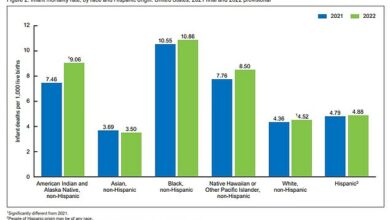Relief for people with hand eczema as regulator close to approving first drug



The first cream developed to treat debilitating hand eczema will be available to thousands of patients in the UK next year, experts say.
Research has shown that the drug delgocitinib significantly reduces itching and redness within a few days.
Delgocitinib is applied to the skin twice daily and has far fewer side effects than treatments currently offered by the NHS.
Hand eczema, in which the skin on the hands and wrists is oozing, cracked and painful, is most common in patients, such as hairdressers or cleaners, who work with irritating chemicals.
Experts say the drug could be available in the UK early next year and could benefit more than 10,000 patients.

Hand eczema, in which the skin on the hands and wrists becomes wet, cracked and sore, is most common in people who work with irritating chemicals.
“Delgocitinib is fantastic because it appears to be both highly effective and safe,” said Dr Anthony Bewley, a dermatologist at Barts Health NHS Trust, who recently led a trial of the drug.
‘Hand eczema is relatively common, but can be very physically, emotionally and economically disabling if it affects a patient’s work environment.’
He adds: ‘Because we use our hands so often as a form of communication, they are almost always visible.
‘For people who do work where eczema can flare up, it can also have economic consequences, as patients are forced to take time off.
‘Patients taking delgocitinib felt like they were fitting back into the world and could go back to work without worrying about their skin. I hope the drug will be approved in the UK next year – we’re waiting a while to use it.’
An estimated 14 per cent of the UK population suffers from hand eczema. Although the condition – also known as atopic dermatitis – affects other parts of the body and is caused by an over-reactive immune system attacking the skin, hand eczema is most often triggered by environmental factors, such as soaps or chemicals.
For this reason, it often affects people who work in cleaning, catering, healthcare or mechanical professions and who regularly come into contact with irritants. Unlike atopic dermatitis, which mainly affects children, hand eczema is more common in adults. And although many new effective atopic dermatitis medications have emerged in recent years, experts say that these have not had the same effect on patients with hand eczema.
This is because these treatments suppress inflammation in the body, but do not address the skin sensitivity that hand eczema patients experience. Patients are usually offered steroids, which reduce skin inflammation, or a powerful drug called alitretinoin, which is also used to treat a form of skin cancer called Kaposi’s sarcoma.
However, both drugs come with some nasty side effects, including joint pain, headaches, extremely dry eyes, and even thinning skin, which can lead to painful cuts.
Delgocitinib is now the first treatment specifically developed for the treatment of hand eczema and available through the NHS.
The cream belongs to a group of medicines known as Janus Kinase (JAK) inhibitors. These medicines work by suppressing the immune system.
Substances in the cream block the activation of proteins that cause inflammation, preventing the skin from drying out and cracking.
Results from an international study of 500 participants, published in January, suggest that delgocitinib is more effective and causes fewer side effects than steroid creams or alitretinoin.
The study included patients whose hand eczema lasted for more than three months or recurred at least twice a year and did not respond to existing treatments.
Last week, health officials at the European Medicines Agency indicated that, based on this compelling study, they would likely approve the drug for this patient group.

Radio journalist George Icke says the treatment could make a ‘huge difference’ to his life
One patient who could benefit from delogcitinib is George Icke, 21, from London. He suffers from eczema flare-ups on his hands and wrists.
The radio journalist says the treatment could make a “huge difference” to his life.
“It’s not just painful and embarrassing, it’s especially ugly,” he says.
‘I’m quite insecure about my eczema and I don’t like it to be visible. But you can’t hide your hands when you use them at work.’




